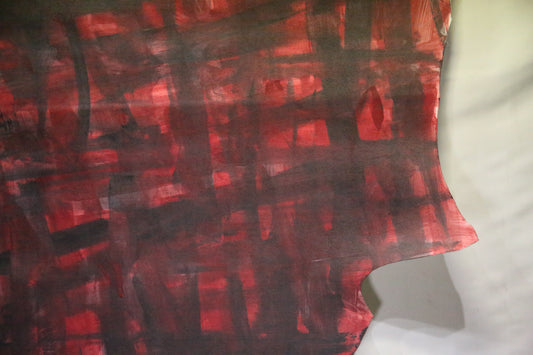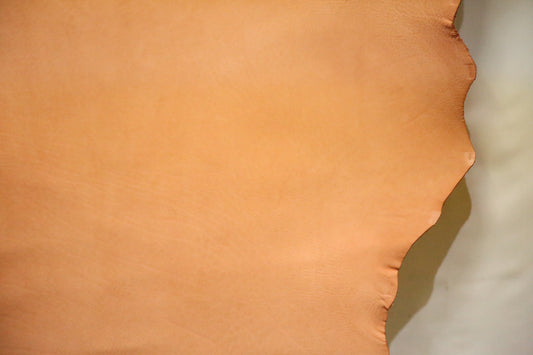Card case / botanical leather® Yakusugi dye / cowhide
Card case / botanical leather® Yakusugi dye / cowhide
[Strongly and gently rooted in the earth]
On Yakushima, cedar trees that are over 1,000 years old are called "Yakusugi," and the famous Jomon Cedar and Yayoi Cedar Yakusugi trees are said to be over 3,000 years old.
The Yakusugi Craft Workshop, which uses Yakusugi cedars cut down during the Edo period and fallen trees to create Shinto altars and alcove pillars, uses leftover wood (such as sawdust) and buried wood,
The dye liquid is created over a long period of time using pruned leaves and other materials.
Yakusugi dyeing uses only the first and second dye solutions to produce a deep, solid color.
A multi-purpose card case made entirely of leather. Since it is made entirely of leather, it fits neatly into your pocket. It opens and closes with a flap, and can hold about 5 cards, about 10 business cards (varies depending on material), and about 10 to 15 coins. You can enjoy it according to your needs.
|
This product is unique due to individual differences in dyeing, so it may not be the same as the product in the image. Please note that products with patterns in particular may be rendered differently from the pattern in the image. *The images used for the product display are of indigo dye/mottled tie-dye. |
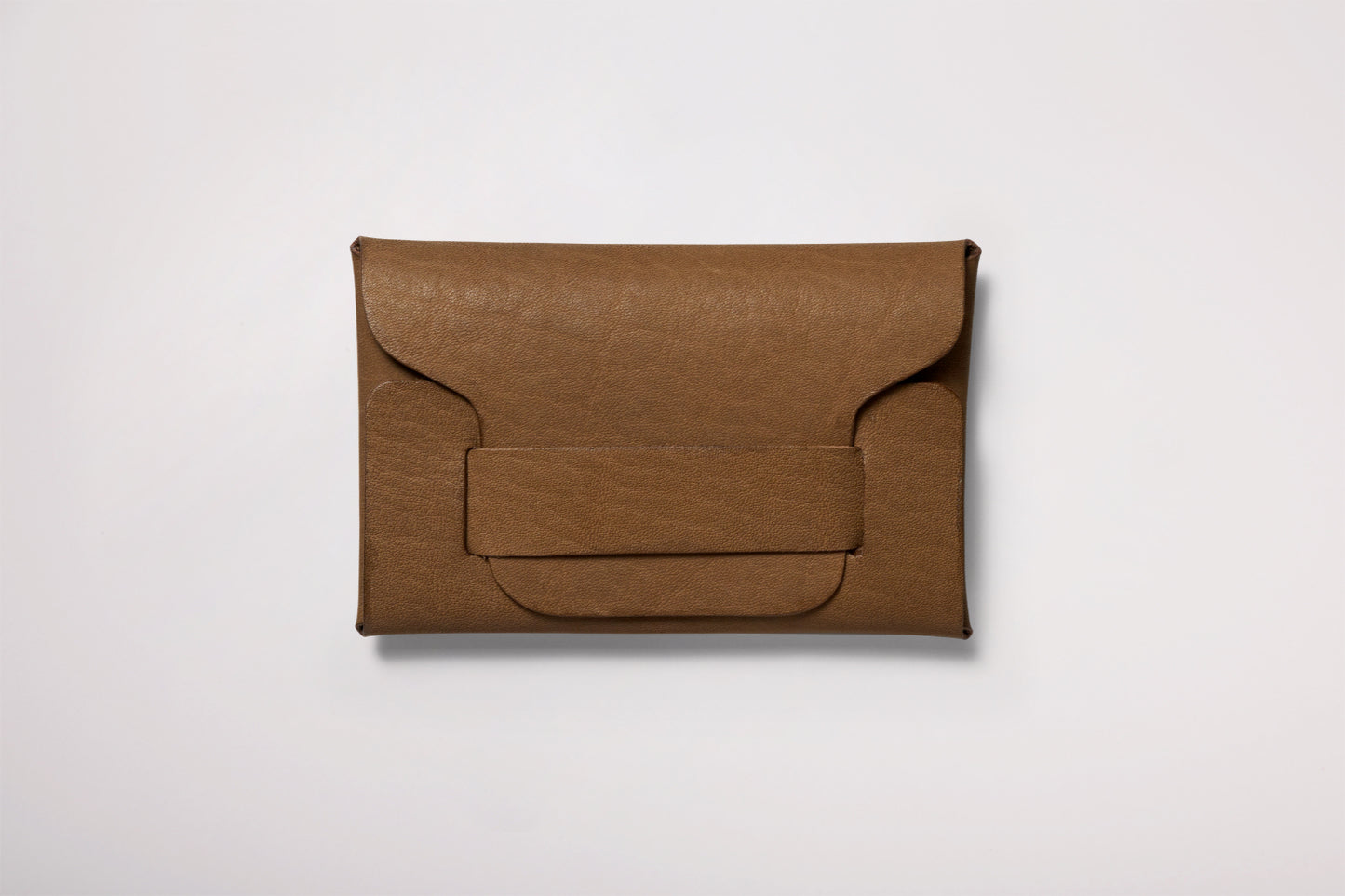
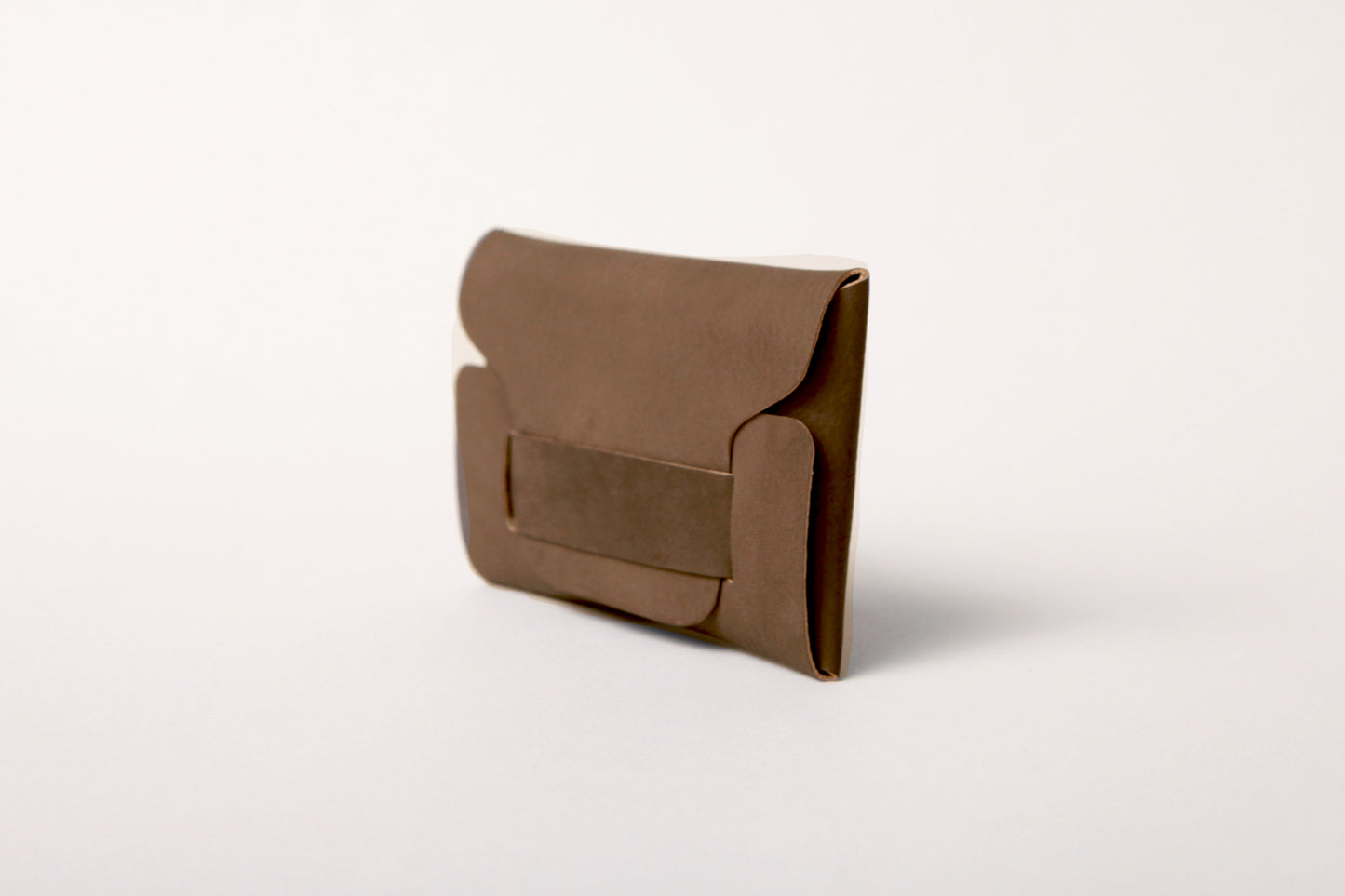
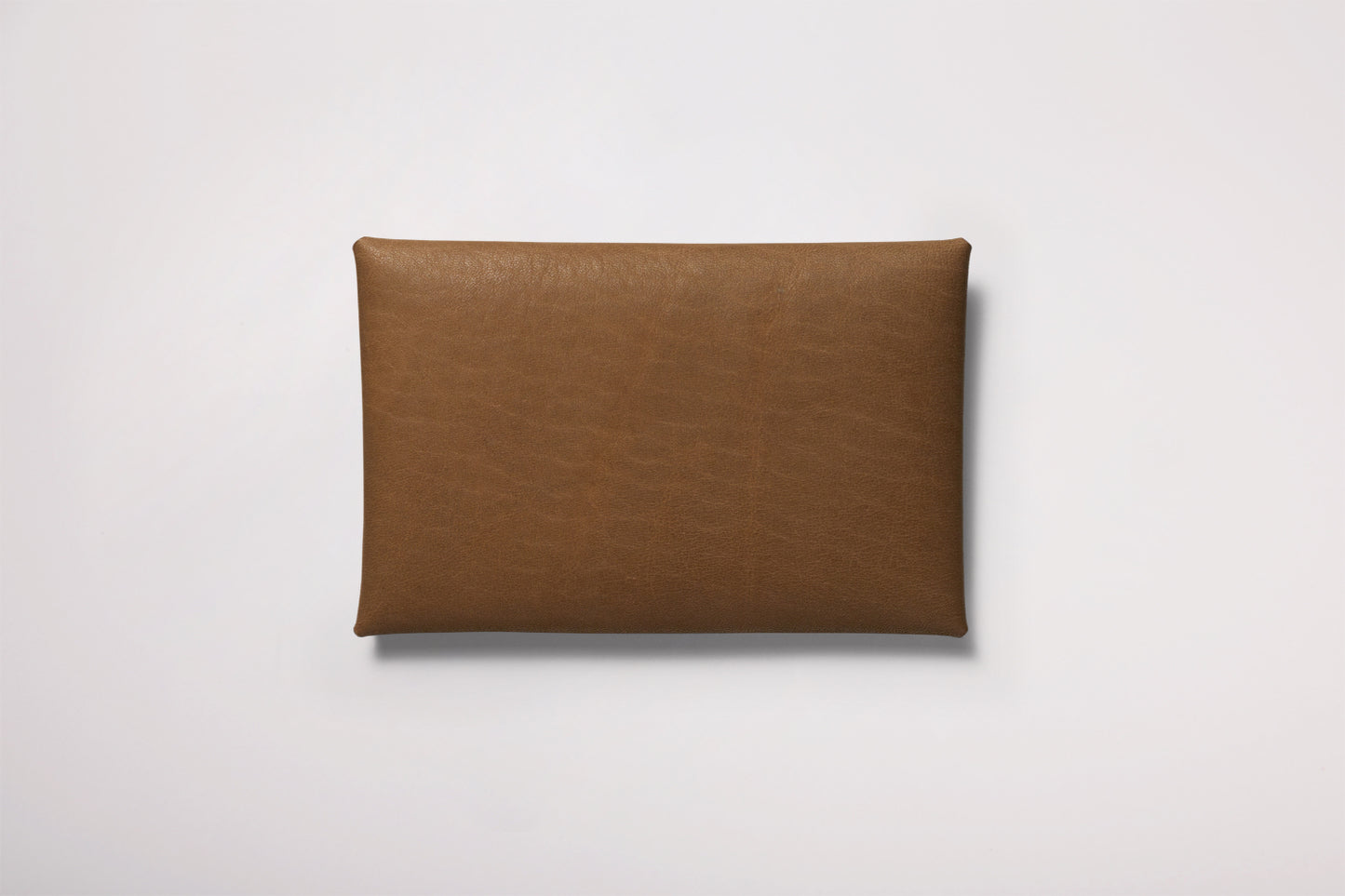
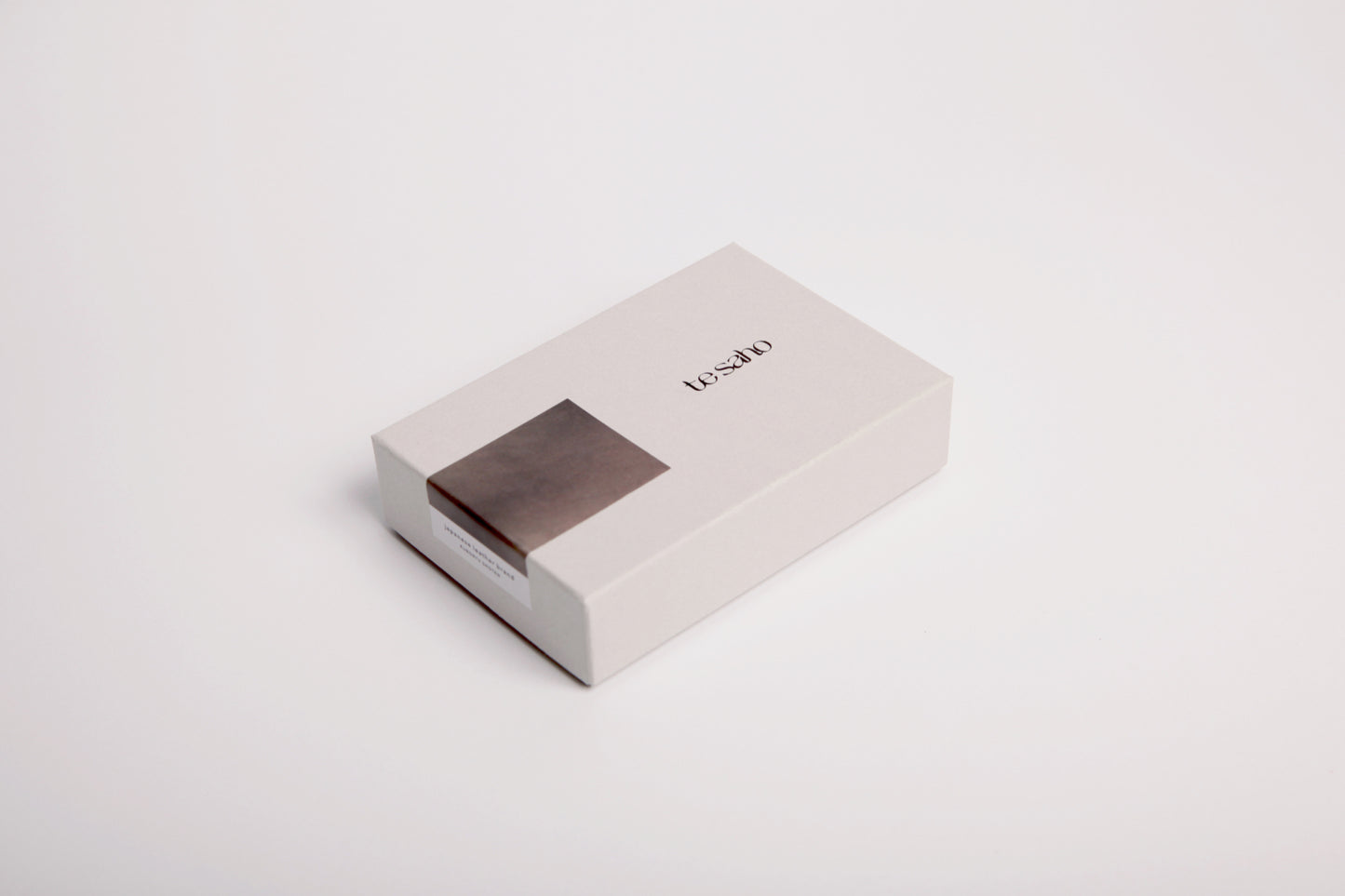
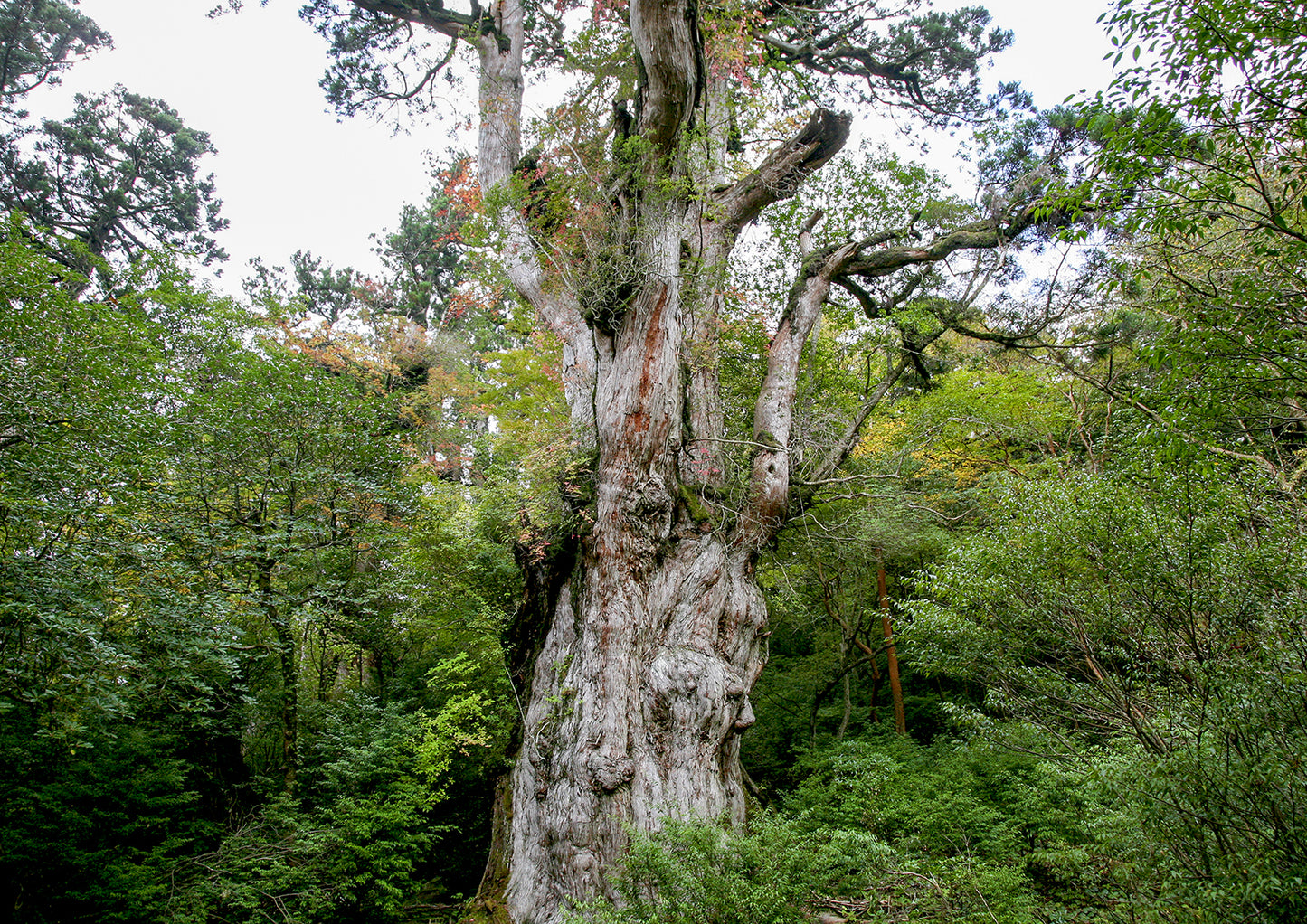
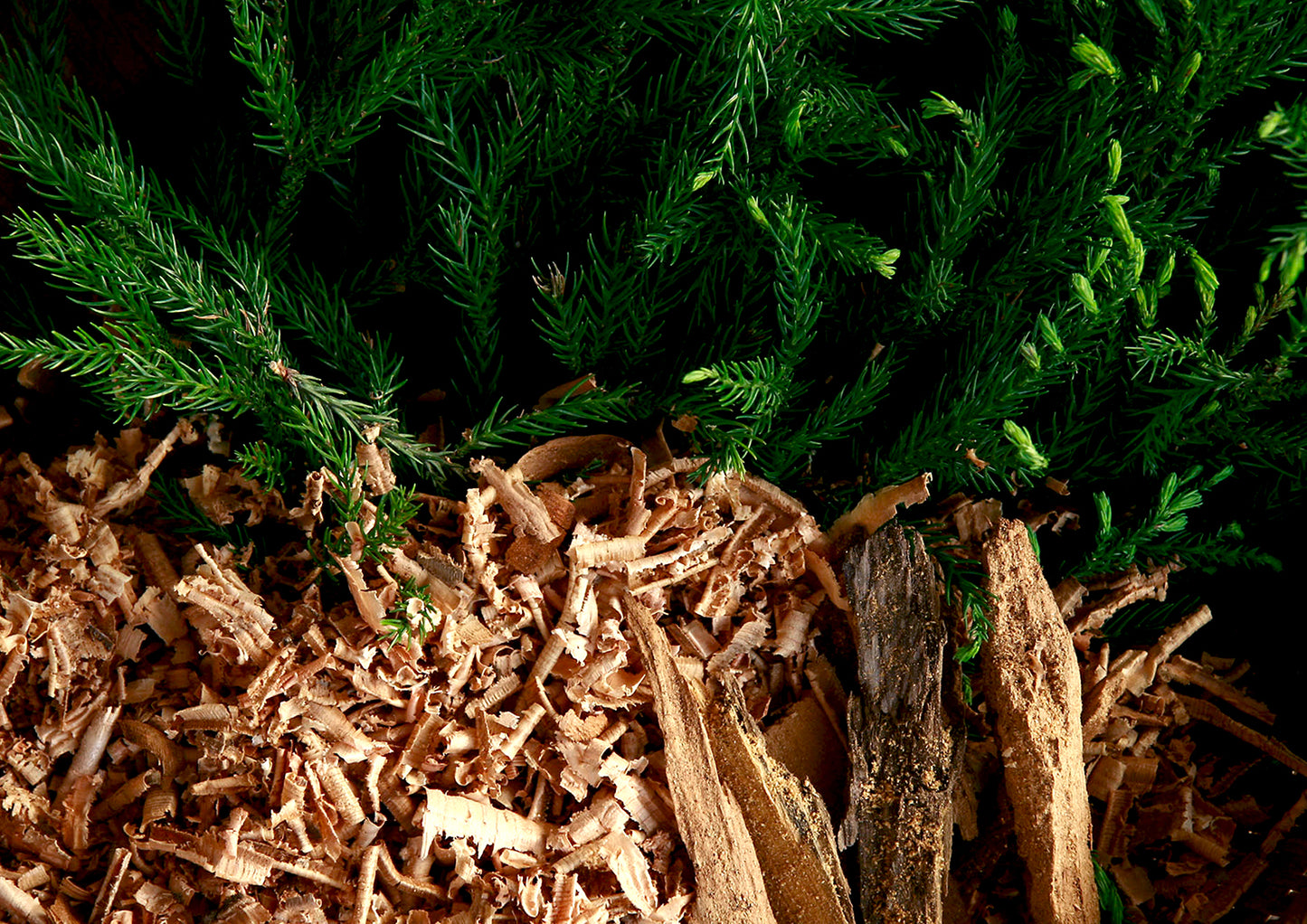







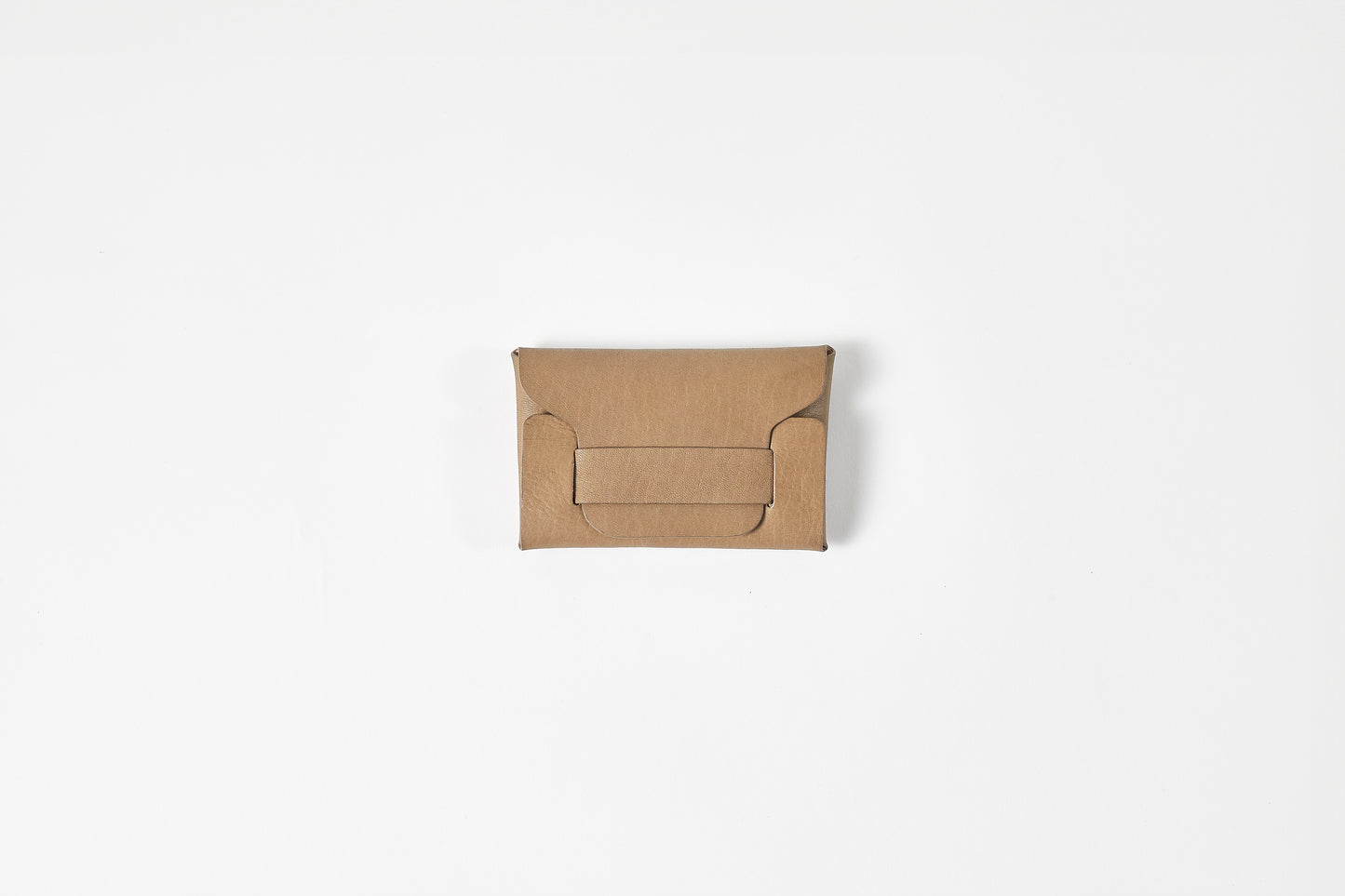
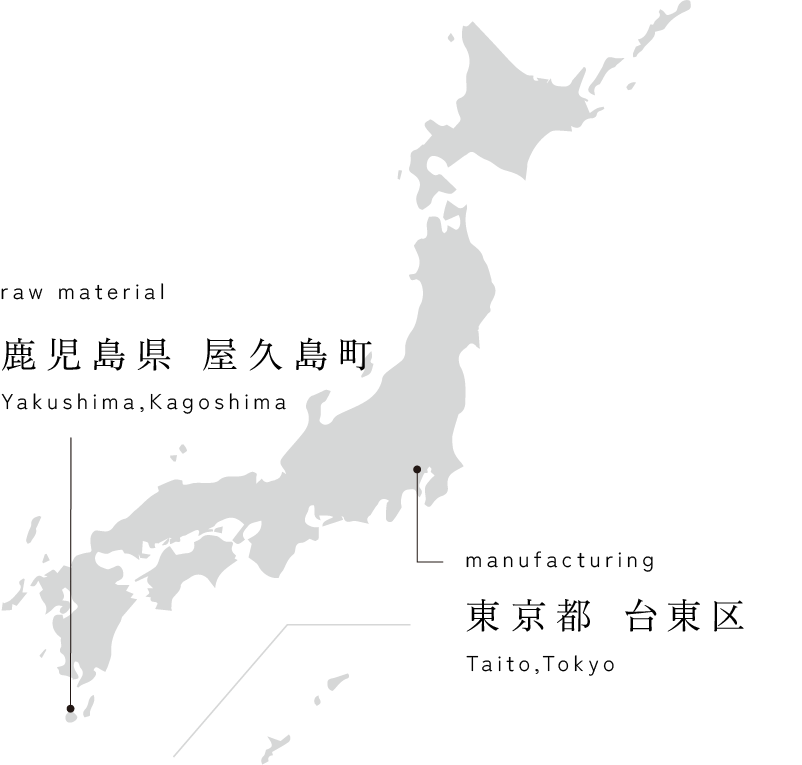
Strongly and gently rooted in the earth
Yakusugi dyeing
Yakusugi is a type of cedar that grows naturally in the mountains of Yakushima at an altitude of 500 meters or more. Trees that are over 1000 years old are called "kosugi" (small cedars). Leather dyed with Yakusugi grown in the great outdoors of Yakushima exudes the strength and gentleness of the majestic life that resides in its color. The dye is made from scraps from furniture production and Yakusugi leaves, and is boiled over many days using a unique technique to extract the color that lies deep within the Yakusugi.
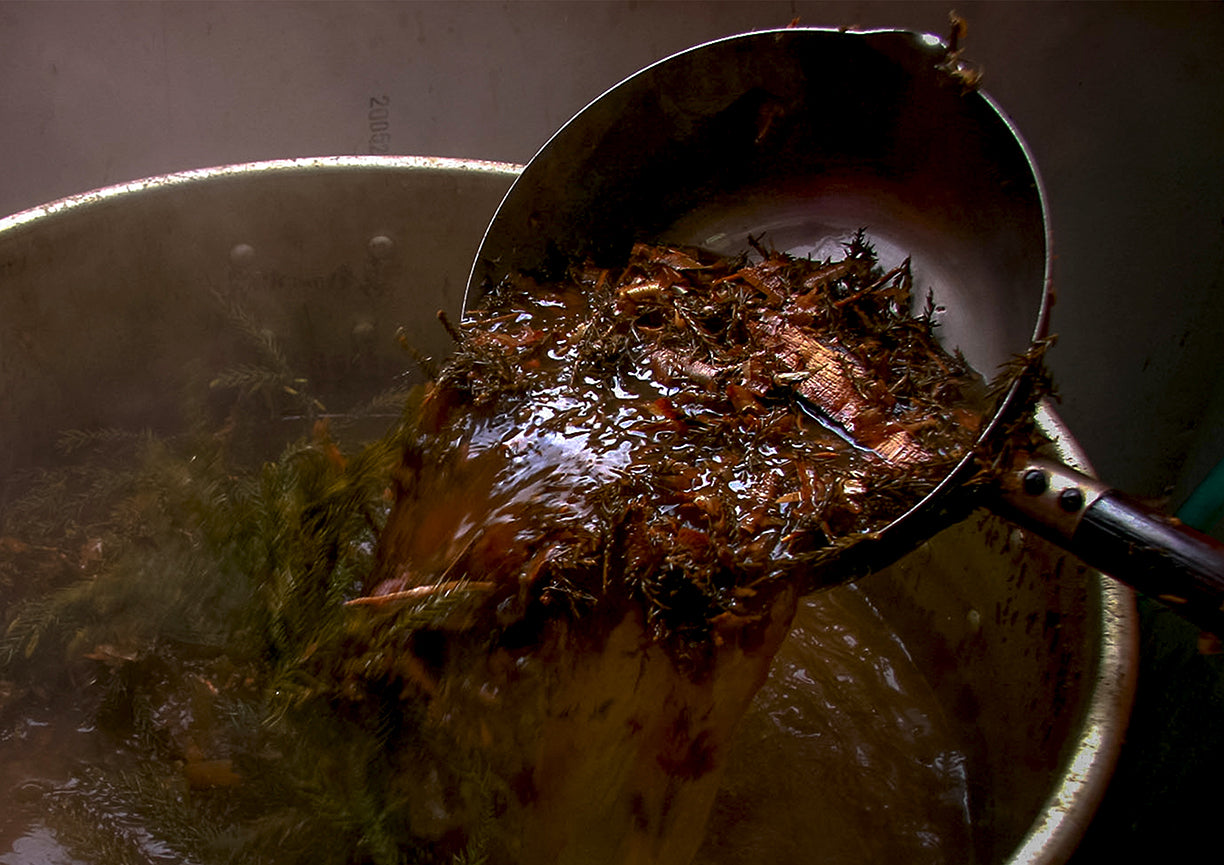
Breathing new life into leftover materials
On Yakushima, cedar trees that are over 1,000 years old are called "Yakusugi," and the famous Jomon Cedar and Yayoi Cedar Yakusugi trees are said to be over 3,000 years old.
The Yakusugi Craft Workshop, which uses Yakusugi cedars cut down during the Edo period and fallen trees to create Shinto altars and alcove pillars, uses leftover wood (such as sawdust) and buried wood,
The dye liquid is created over a long period of time using pruned leaves and other materials.
Yakusugi dyeing uses only the first and second dye solutions to produce a deep, solid color.
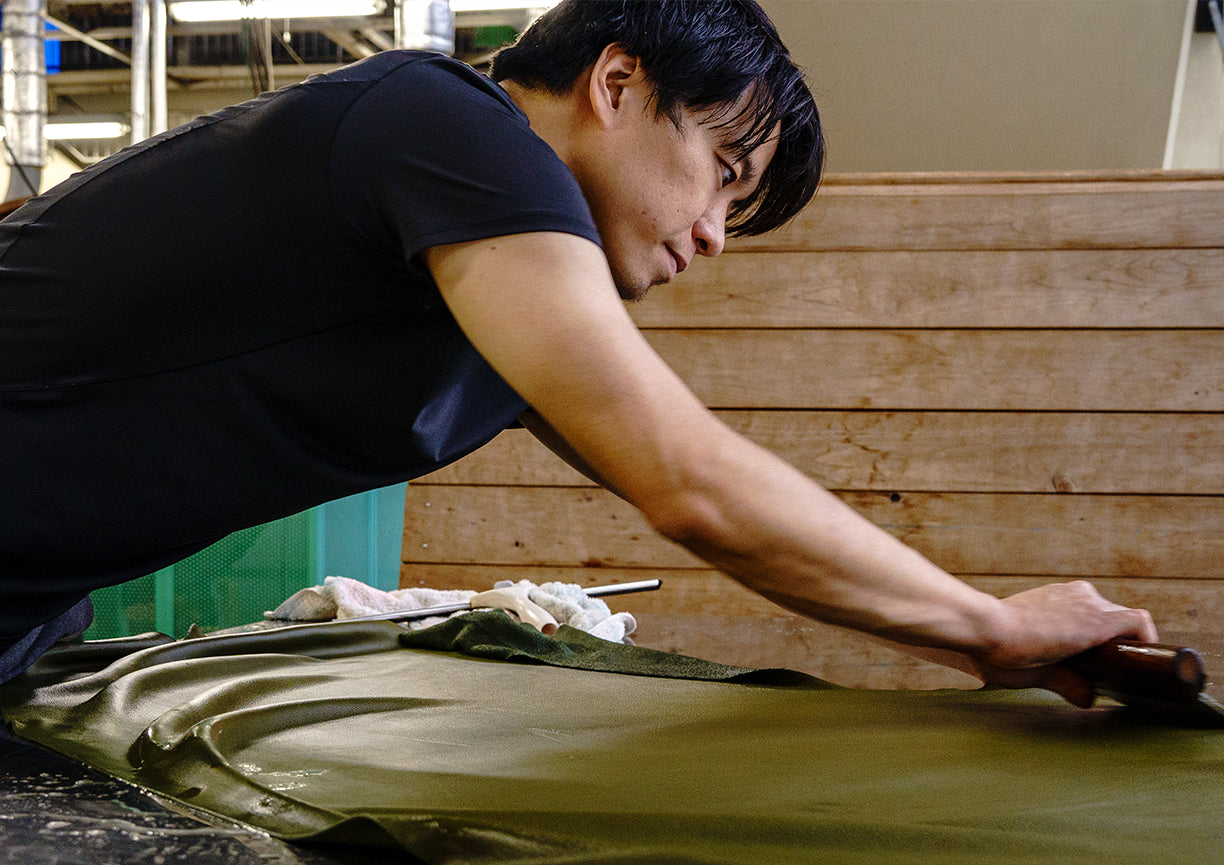
Dyeing
Masato Komuro
Born in Fukuoka in 1983, he lives in Tokyo. He moved to Akizuki, Asakura City, Fukuoka Prefecture, where he was exposed to plant dyeing at his family's plant dyeing studio (Kobo Yumezaiku). He majored in dyeing and weaving at the Department of Crafts, Faculty of Fine Arts, Tokyo University of the Arts. While studying traditional techniques, he also explored new technical expressions such as plant dyeing leather. In 2007, he introduced whole garment knitting and mastered the techniques. In 2008, he started his own knitwear brand, "MAITO". In 2010, he established Might Design Works Co., Ltd. In the same year, he opened a directly managed store at 2k540 in Ueno, Taito Ward, Tokyo. In 2012, he opened an atelier shop in Kuramae, Taito Ward, Tokyo.
Featured products
-
Cow leather / Hand-painted art dye / Red
AST-05Regular price $4,138.00 TWDRegular priceUnit price per -
Card case / botanical leather® Sakura dye / Mountain cherry / Cowhide
BYZ-C-01Regular price $2,574.00 TWDRegular priceUnit price per -
Cowhide / Kip leather / botanical leather® Sakura dye / Somei Yoshino
BSY-01Regular price $9,073.00 TWDRegular priceUnit price per -
Card case / botanical leather® Yakusugi dye / cowhide
BYS-C-01Regular price $2,574.00 TWDRegular priceUnit price per
- Choosing a selection results in a full page refresh.
- Opens in a new window.















